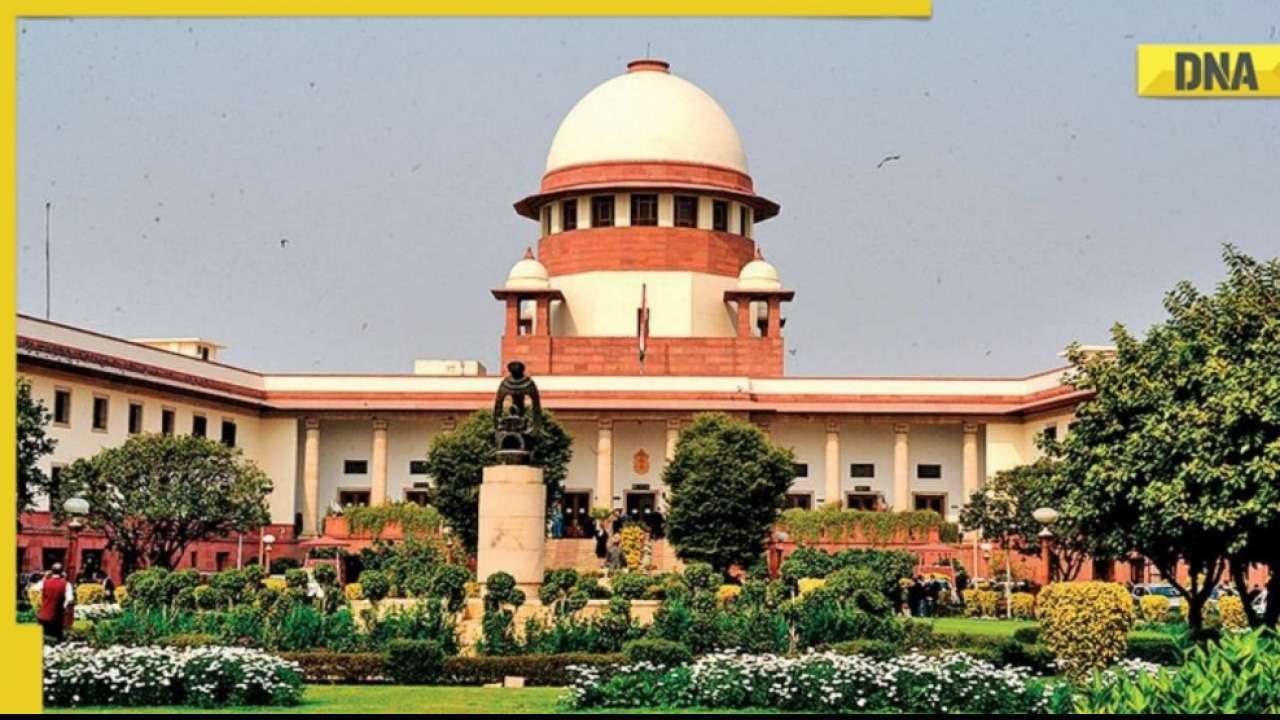
A five-judge Constitution bench of the Supreme Court will on Wednesday hear a batch of petitions challenging the central government’s 2016 decision to demonetise Rs 500 and Rs 1,000 currency notes.
The bench was constituted by the top court on Tuesday to hear five crucial cases including the challenges to the Centre’s note ban move. At present, three five-judge Constitution benches headed by Chief Justice UU Lalit and Justices DY Chandrachud and Sanjay Kishan Kaul are hearing various contentious issues, which were pending for years.
The fourth Constitution bench will be headed by Justice S Abdul Nazeer and would comprise Justices B R Gavai, A S Bopanna, V Ramasubramanian, and BV Nagarathna which will hear five cases starting from Wednesday.
It will start hearing a batch of 58 petitions challenging the Centre's November 8, 2016 decision to demonetise the currency notes.
On December 16, 2016, a bench headed by then Chief Justice TS Thakur and Justice (retd) AM Khanwilkar, and Justice DY Chandrachud referred the question of the validity of the decision and other questions to a larger bench of five judges for authoritative pronouncement.
It had framed various questions in the reference order to be adjudicated by the five-judge bench which includes whether the notification dated November 8, 2016, is ultra vires provisions of the Reserve Bank of India Act, 1934 and does the notification contravene the provisions of Article 300 (A) of the Constitution.
The three-judge bench had then said that assuming that the 2016 notification has been validly issued under the Reserve Bank of India Act, 1934 whether it is ultra vires Articles 14 and 19 of the Constitution. "Whether the limit on withdrawal of cash from the funds deposited in bank accounts has no basis in law and violates Articles 14,19 and 21", the bench had said.
It had said whether the implementation of the impugned notification(s) suffers from procedural and/or substantive unreasonableness and thereby violates Articles 14 and 19 and, if so, to what effect.
The top court had framed various other questions and said that keeping in view the "general public importance" and the "far-reaching implications" which the answers to the questions may have, "we consider it proper to direct that the matters be placed before the larger Bench of five Judges for an authoritative pronouncement".
The fourth constitution bench would also hear other contentious issues related to issues relating to freedom of speech of public and state functionaries.
The third issue which will be taken up by the five-judge bench relates to the question of whether a Parliamentarian or MLA can claim immunity from criminal prosecution for taking bribes to give a speech or vote in an assembly or Parliament.
In 2019, a bench headed by then chief justice Ranjan Gogoi and comprising Justices S Abdul Nazeer and Sanjiv Khanna referred to a five-judge bench the crucial question with "wide ramification" and of "substantial public importance".
The three-judge bench had then said that it would revisit its 24-year-old verdict in the sensational Jharkhand Mukti Morch (JMM) bribery case on an appeal filed by Sita Soren, a JMM MLA from Jama constituency in Jharkhand.
She had appealed against the Jharkhand High Court order of February 17, 2014, refusing to quash a criminal case lodged against her for allegedly taking bribes to vote for a particular candidate in the Rajya Sabha elections held in 2012. She was charged by CBI for allegedly taking bribes from one candidate and voting for another.
Sita Soren is also the daughter-in-law of former union minister Shibu Soren, who was involved in the alleged JMM bribery case. Shibu Soren, along with his four-party MPs, had allegedly taken bribes to vote against the no-confidence motion against the then Prime Minister PV Narasimha Rao's government in the Centre in July 1993.
The fourth matter which will be taken up by the constitution bench headed by Justice Nazeer relates to Sukhpal Singh Khaira in which a two-judge bench headed by former Chief Justice of India NV Ramana in 2019 had referred two questions to a larger bench.
The first question which was referred to is whether the trial court has the power under Section 319 of CrPC for summoning additional accused when the trial concerning other co-accused has ended and the judgment of conviction rendered on the same date before pronouncing the summoning order.
The second question was whether the trial court has the power under Section 319 of the CrPC for summoning additional accused when the trial in respect of certain other absconding accused (whose presence is subsequently secured) is ongoing/pending, having been bifurcated from the main trial?
It also sought the framing of guidelines for the competent courts while exercising power under Section 319 CrPC.
The last case to be dealt with by the fourth constitution bench relates to the validity of provisions of the Prevention of Corruption Act.
On August 24, the top court had notified that 25 five-judge Constitution bench matters will be listed from August 29 onwards, two days after justice UU Lalit had taken over charge as the Chief Justice of India.